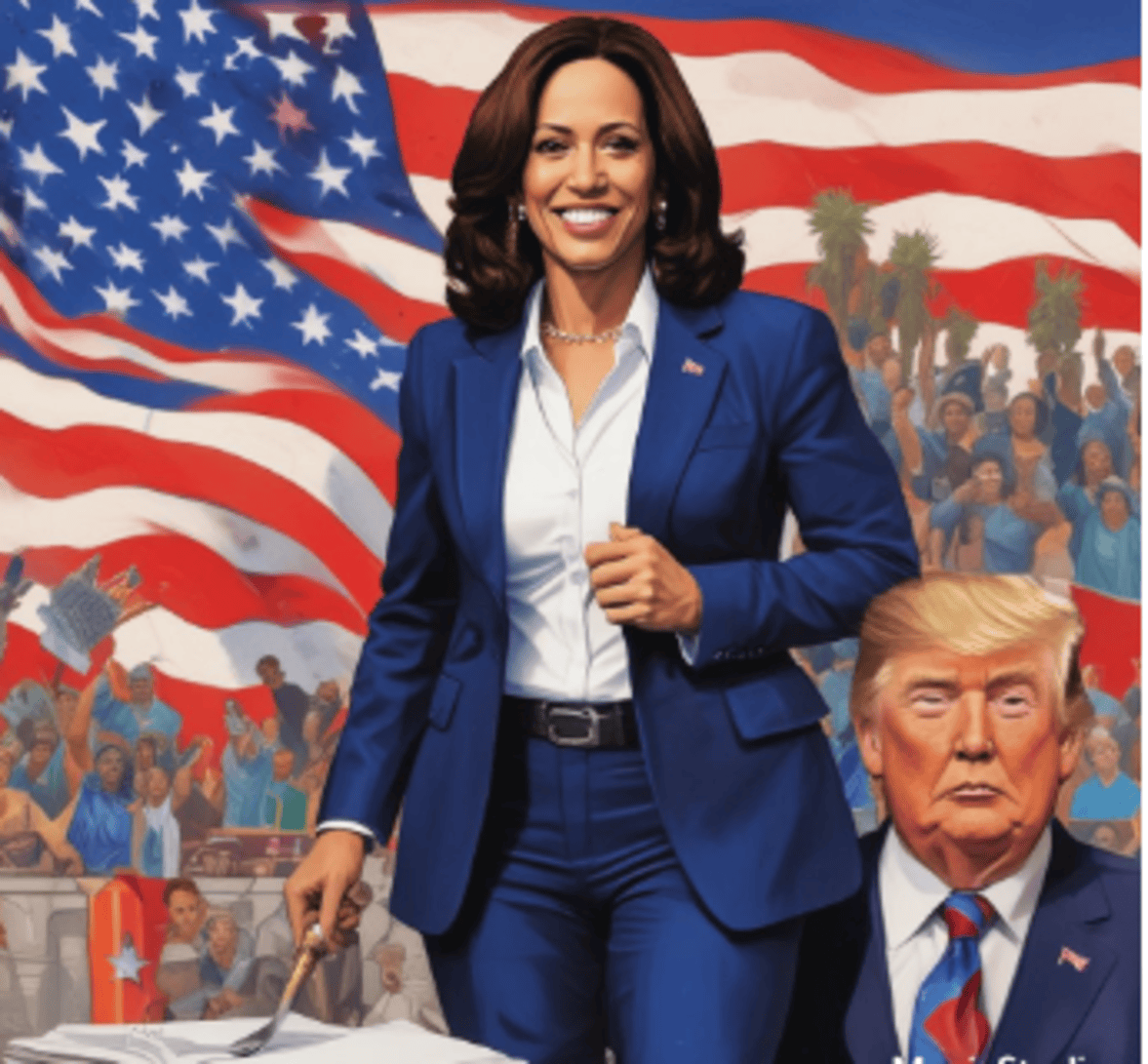As the U.S. approaches a pivotal election, voters face a consequential choice between Vice President Kamala Harris and former President Donald Trump. The outcome of this election will not only shape domestic policy but also influence governments, companies, and investors around the globe. Understanding the potential effects of each candidate’s victory is crucial for anticipating market reactions and navigating potential economic turmoil.
The Candidates and Their Platforms
Kamala Harris: As the incumbent Vice President, Harris has a platform focused on progressive policies that prioritize social justice, healthcare access, and climate change initiatives. Key aspects of her agenda include:
- Climate Action: Harris supports ambitious climate policies aimed at reducing carbon emissions, transitioning to renewable energy, and achieving net-zero emissions by 2050. This could lead to increased investments in green technologies. This would lead to an increase job creation in this sector and have an overall positive impact on the economy
- Healthcare Reform: Building on the Affordable Care Act, Harris advocates for expanding healthcare access and addressing systemic inequalities in the healthcare system. This would also lead to more job creation and positively impact the economy
- Social Equity: Harris’s policies often emphasize racial and economic equity, including reforms in criminal justice and education. These actions would lead to additional job creation, more support for small businesses and an overall levelling of the playing field for all in an inclusive way which would definitely lead to a boost in the economy, increase foreign trade and an overall steady progression both internally and externally.
Donald Trump: As a Republican candidate, Trump’s platform centers around conservative economic policies, deregulation, and a strong nationalistic approach. Key elements include:
- Tax Cuts and Deregulation: Trump is likely to push for tax cuts aimed at businesses and individuals, which could stimulate short-term economic growth but may also exacerbate income inequality.
- Trade Policies: His “America First” agenda may result in more aggressive trade policies and tariffs, which could create uncertainty in global markets.
- Energy Independence: Trump promotes fossil fuel development and deregulation of the energy sector, potentially leading to increased domestic production but heightened environmental concerns.
Potential Effects on the Economy and Markets
- Market Reactions: Financial markets often react swiftly to political outcomes. Historically, markets have shown volatility around elections due to uncertainty. A Harris victory might boost renewable energy stocks and healthcare sectors, while a Trump win could benefit traditional energy and defense stocks.
- Global Trade Dynamics: Trump’s trade policies may lead to increased tariffs and strained relations with key trading partners. In contrast, Harris might pursue more multilateral trade agreements, fostering international cooperation.
- Investor Confidence: Harris’s progressive agenda could be met with mixed reactions from investors, particularly in sectors like energy and finance, where regulatory changes might impact profitability. Trump’s policies may appeal to certain sectors but could lead to broader economic uncertainty due to potential trade wars and regulatory rollbacks.
The Risk of Market Misjudgment
Investors and analysts often attempt to predict market reactions based on historical patterns, but this can lead to significant misjudgments, particularly in volatile political climates. Here are some reasons why markets might misinterpret the potential turmoil stemming from either candidate’s victory:
- Overemphasis on Short-Term Effects: Markets often focus on immediate reactions rather than long-term implications. A Trump victory may initially rally certain sectors, but long-term trade ramifications could create economic instability. Conversely, Harris’s reforms may face significant pushback in Congress, leading to delays and uncertainty.
- Ignoring Political Gridlock: Both candidates could face challenges in implementing their agendas due to a divided Congress. If the Senate remains closely contested, substantial policy changes may be difficult to achieve, which could lead to frustration in the markets.
- Global Context: The effects of U.S. elections are not isolated; they reverberate globally. Political decisions in the U.S. can lead to ripple effects in emerging markets, currencies, and international relations. For instance, Harris’s approach to climate change could influence global energy markets, while Trump’s policies might affect global trade flows.
Potential Outcomes and Long-Term Implications
- Harris Victory: If elected, Harris may push for significant reforms, particularly in climate policy and social equity. This could lead to increased investments in green technology and healthcare but may also encounter resistance from conservative lawmakers, potentially leading to legislative gridlock.
- Trump Victory: A return to the presidency for Trump could reinstate deregulation and tax cuts, leading to short-term economic boosts in certain sectors. However, his confrontational trade stance might lead to increased volatility in international markets, particularly with China and the European Union.
Conclusion
The upcoming election represents a critical juncture for the United States, with implications that extend far beyond its borders. Voters must consider not just the immediate outcomes but the long-term effects on the economy, markets, and global relationships.
As investors and analysts navigate this landscape, it is essential to remain aware of the complexities involved and the potential for market misjudgment in the face of political uncertainty. Regardless of the election outcome, the U.S. will face challenges that require thoughtful leadership and cooperation across political lines to ensure stability and growth in a rapidly changing world.



